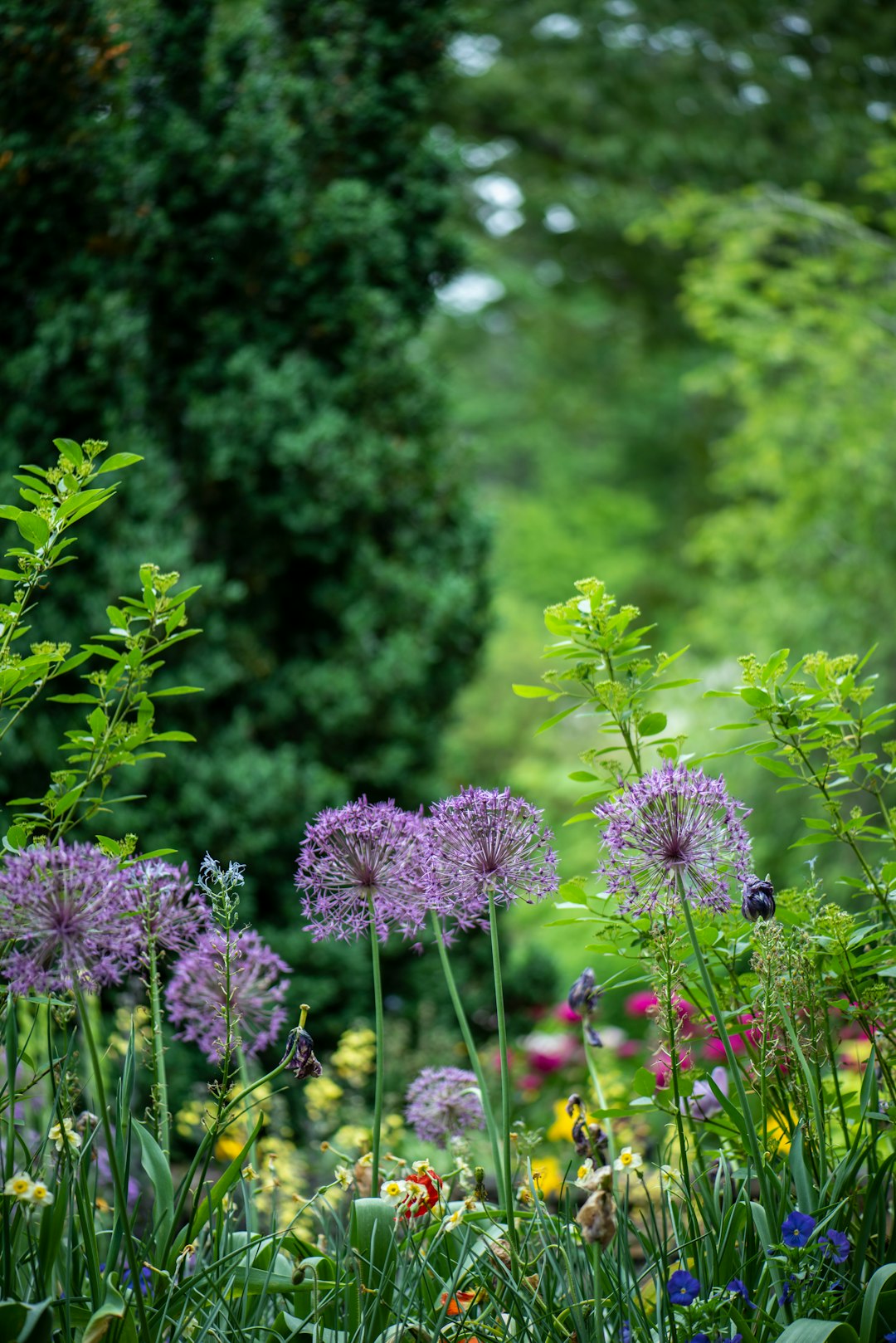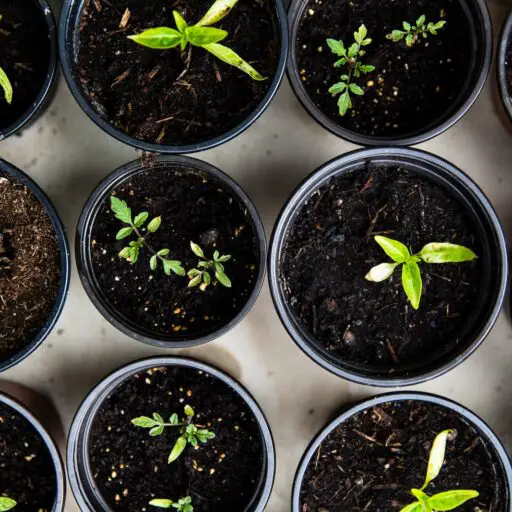Support our educational content for free when you purchase through links on our site. Learn more
Imagine walking through your neighborhood and stumbling upon a lush garden bursting with vibrant colors, fresh vegetables, and the laughter of children playing nearby. This isn’t just a pretty sight; it’s a community garden, and its impact goes far beyond aesthetics. Community gardens are transforming urban landscapes and fostering connections among neighbors, improving public health, and even boosting local economies. Did you know that community gardens can reduce feelings of depression by up to 60%? In this article, we’ll explore 10 surprising benefits of community gardens and how they can enrich your community in ways you might never have imagined!
From promoting healthier eating habits to creating social bonds, the advantages of community gardens are profound and far-reaching. Whether you’re a seasoned gardener or someone curious about starting a garden, this post will provide you with insights and inspiration to get involved. Let’s dig into the details!
Key Takeaways
- Health Benefits: Community gardens can significantly improve access to fresh produce, leading to healthier eating habits and reduced rates of depression.
- Social Connections: They foster community spirit and build relationships among neighbors, creating a supportive network.
- Environmental Impact: Community gardens enhance urban biodiversity, improve air quality, and promote sustainable practices.
- Economic Growth: These gardens can stimulate local economies by reducing food costs and increasing property values.
- Educational Opportunities: Community gardens serve as platforms for learning about gardening, nutrition, and environmental stewardship.
Ready to start your own community garden? 👉 Shop gardening supplies on:
- Gardener’s Supply Company: Gardener’s Supply
- Home Depot: Home Depot
- Amazon Gardening Tools: Gardening Tools
Dive into the world of community gardening and discover how you can make a difference in your neighborhood! 🌼
Table of Contents
Quick Tips and Facts
The Transformative Power of Community Gardens
History of Community Gardens: Growing Together
Public Health Benefits of Community Gardens
Social Connections: Building Community Through Gardening
Environmental Impact: Greening Urban Spaces
Economic Benefits: How Community Gardens Boost Local Economies
Educational Opportunities: Learning Through Gardening
How to Start a Community Garden: A Step-by-Step Guide
Challenges and Solutions: Overcoming Obstacles in Community Gardening
Success Stories: Inspiring Community Garden Projects
The Role of Local Organizations in Supporting Community Gardens
Future Trends: The Evolution of Community Gardening
Conclusion
Recommended Links
FAQ
Reference Links
Quick Tips and Facts
- Community gardens can reduce feelings of depression by up to 60%! 🌱
- They can lower gun violence by 20% or more in urban areas. 🚫🔫
- Approximately 18,000 community gardens exist across the U.S. and Canada. 🌍
- Community gardens improve food security, increasing vegetable intake among families. 🥦
- They foster social connections, enhancing community ties and collaboration. 🤝
The Transformative Power of Community Gardens
Community gardens are more than just patches of green; they are transformative spaces that can revitalize neighborhoods! 🌼 They turn vacant lots into vibrant hubs where people come together to grow food, share knowledge, and build relationships.
Benefits of Community Gardens
- Healthier Eating Habits: Access to fresh produce encourages healthier diets.
- Mental Well-being: Gardening reduces stress and promotes relaxation.
- Community Cohesion: Neighbors work together, fostering friendships and support networks.
- Environmental Impact: Gardens improve air quality and promote biodiversity.
History of Community Gardens: Growing Together

The concept of community gardens dates back to the Great Depression when people needed to grow their own food. Fast forward to today, and these gardens have evolved into essential community assets. 🌳
Key Historical Milestones
- 1893: The first community garden in the U.S. was established in Detroit.
- 1970s: Urban gardening movements gained momentum, particularly in cities like New York.
- 2000s: The rise of food justice movements emphasized the importance of community gardens in food deserts.
Public Health Benefits of Community Gardens
Community gardens are a boon for public health! They provide fresh produce, which is crucial in areas lacking access to grocery stores. According to a study by the Pennsylvania Horticultural Society, community gardens can significantly improve dietary habits.
Health Stats
| Health Benefit | Before Gardening | After Gardening |
|---|---|---|
| Adults eating vegetables daily | 18.2% | 84.8% |
| Children eating vegetables daily | 24.0% | 64.0% |
| Families worrying about food running out | 31.2% | 3.1% |
Social Connections: Building Community Through Gardening
Gardening is a social activity that fosters connections. When people come together to plant, weed, and harvest, they create bonds that can last a lifetime.
Ways Community Gardens Foster Connections
- Shared Goals: Working towards a common purpose strengthens relationships.
- Cultural Exchange: Diverse communities can share gardening techniques and recipes.
- Support Networks: Neighbors can rely on each other for help and advice.
Environmental Impact: Greening Urban Spaces
Community gardens play a vital role in enhancing urban environments. They not only beautify neighborhoods but also contribute to ecological health. 🌿
Environmental Benefits
- Biodiversity: Gardens attract pollinators and beneficial insects.
- Air Quality: Plants improve air quality by absorbing pollutants.
- Stormwater Management: Gardens help absorb rainwater, reducing runoff.
Economic Benefits: How Community Gardens Boost Local Economies
Community gardens can also stimulate local economies. They provide fresh produce, reduce grocery bills, and can even create job opportunities.
Economic Insights
- Cost Savings: Families save money by growing their own food.
- Job Creation: Gardens can lead to jobs in maintenance, education, and sales.
- Increased Property Values: Well-maintained gardens can enhance neighborhood appeal, raising property values.
Educational Opportunities: Learning Through Gardening
Community gardens are fantastic educational platforms! They teach valuable skills about food production, environmental stewardship, and nutrition. 🌱
Educational Benefits
- Workshops: Many gardens offer classes on gardening techniques and healthy cooking.
- Mentorship: Experienced gardeners can mentor newcomers, fostering a sense of community.
- School Programs: Schools can partner with gardens to teach students about sustainability.
How to Start a Community Garden: A Step-by-Step Guide
Ready to dig in? Starting a community garden is easier than you think! Here’s how to get started:
Step-by-Step Process
- Gather a Group: Find like-minded individuals who are interested in gardening.
- Choose a Location: Look for vacant lots or underutilized spaces.
- Secure Permissions: Obtain necessary permits and approvals from local authorities.
- Plan the Garden: Decide on the layout, crops, and maintenance responsibilities.
- Fundraise: Seek donations or grants to cover costs for tools, seeds, and soil.
- Start Planting: Organize a planting day and get everyone involved!
Challenges and Solutions: Overcoming Obstacles in Community Gardening
While community gardens are rewarding, they come with challenges. Here are some common issues and how to tackle them:
Common Challenges
- Funding: Securing funds can be tough. Consider crowdfunding or local sponsorships.
- Maintenance: Keeping the garden tidy requires commitment. Rotate responsibilities among members.
- Conflict Resolution: Disagreements may arise. Establish clear communication and guidelines.
Success Stories: Inspiring Community Garden Projects
Let’s celebrate some successful community gardens that have made a difference! 🌟
Notable Examples
- The Incredible Edible Project: This initiative in Todmorden, UK, encourages residents to grow food in public spaces.
- The Brooklyn Grange: A rooftop farm in NYC that produces fresh vegetables while providing educational programs.
The Role of Local Organizations in Supporting Community Gardens
Local organizations can be instrumental in the success of community gardens. They provide resources, training, and support to help gardens thrive.
How Organizations Help
- Training Programs: Offer workshops on gardening and sustainability.
- Resource Sharing: Provide tools, seeds, and materials.
- Networking: Connect gardeners with each other and with local businesses.
Future Trends: The Evolution of Community Gardening
As we look ahead, community gardening is evolving. Here are some trends to watch:
Emerging Trends
- Vertical Gardening: More urban gardeners are using vertical space to grow food.
- Hydroponics: Soil-less gardening methods are gaining popularity, especially in urban settings.
- Technology Integration: Apps and online platforms are being developed to connect gardeners and share resources.
Conclusion

Community gardens are a powerful force for positive change in neighborhoods. They promote health, foster connections, and enhance the environment. Whether you’re looking to start a garden or join an existing one, the benefits are clear! 🌼
Recommended Links
- Benefits of Community Gardens
- Community Garden Events
- Community Garden Policies
- Garden Design Ideas
- Garden Maintenance Tips
FAQ

What is a community garden?
A community garden is a shared space where individuals come together to grow fruits, vegetables, and flowers, often in urban areas.
How can I get involved in a community garden?
You can join an existing garden or start your own by gathering a group of interested individuals and following the steps outlined above!
What are the benefits of community gardening?
Community gardening provides access to fresh produce, promotes mental and physical health, fosters social connections, and enhances the environment.
Reference Links
Conclusion

In summary, community gardens are not just patches of green; they are vibrant ecosystems that foster health, community spirit, and environmental sustainability. 🌱 The benefits are manifold: from improving access to fresh produce and enhancing mental well-being to creating social connections and boosting local economies.
Positives:
- Health Benefits: Increased access to fresh fruits and vegetables leads to healthier eating habits.
- Social Cohesion: They foster friendships and community ties, creating a sense of belonging.
- Environmental Impact: Community gardens enhance biodiversity and improve urban air quality.
Negatives:
- Funding Challenges: Securing financial support can be difficult.
- Maintenance Issues: Ongoing commitment is required to keep gardens thriving.
- Conflict Potential: Disagreements among members can arise.
Despite these challenges, the positives far outweigh the negatives, making community gardens a worthwhile investment for any community. We confidently recommend getting involved in a community garden, whether by starting one or joining an existing project. The rewards are plentiful, and every little effort contributes to a healthier, happier community! 🌼
Recommended Links
-
👉 Shop Gardening Supplies on:
- Gardener’s Supply Company: Gardener’s Supply
- Home Depot: Home Depot
- Amazon: Gardening Tools
-
Books on Community Gardening:
FAQ

What are the social benefits of community gardens?
Community gardens create a sense of belonging and community spirit. They bring together people from diverse backgrounds, allowing them to collaborate, share resources, and build friendships. This social interaction can lead to stronger community ties and a support network that extends beyond the garden.
Read more about “What are the social benefits of community gardens?”
How do community gardens improve access to fresh produce?
Community gardens provide a direct source of fresh fruits and vegetables, especially in urban areas known as food deserts, where access to grocery stores is limited. By growing their own food, community members can enjoy nutritious produce without the high costs associated with store-bought items.
Read more about “Unlocking 10 Incredible Community Garden Benefits 🌱 …”
In what ways do community gardens contribute to environmental sustainability?
Community gardens enhance urban biodiversity by providing habitats for pollinators and beneficial insects. They also improve air quality, reduce urban heat, and manage stormwater runoff. By practicing organic gardening techniques, they help reduce chemical use and promote soil health.
Read more about “20 Incredible Community Garden Benefits to Transform Your Neighborhood 🌱 …”
What is the economic impact of community gardens on local communities?
Community gardens can stimulate local economies by reducing food costs for families, creating job opportunities in garden maintenance and education, and increasing property values in the surrounding area. They can also attract visitors and potential customers to local businesses.
Read more about “10 Urban Gardening Initiatives Transforming Cities in 2025 🌱”
How do community gardens promote education and skill-building within a community?
Community gardens serve as educational platforms where individuals can learn about gardening techniques, nutrition, and environmental stewardship. Workshops and mentorship programs can help community members develop new skills, fostering a culture of learning and collaboration.
Read more about “What Makes a Community Garden Successful? 7 Essential Factors 🌱”


